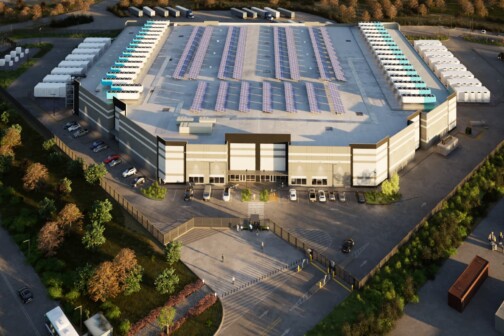
Seemingly complimentary, I am surprised at the frequency with which I am asked where we are in the real estate cycle. Perhaps the more realistic and direct questions would be to predict when do we anticipate the perceived inevitable crash—or market correction? How do we prepare to survive and profit from the few excellent opportunities that will be present? Should I seek alternative employment or can I survive to profit from the next boom? Candidly, if you haven’t done well the last five years, alternate career choices are highly recommended. On occasion, this question comes from people far more qualified to judge than me, but probably stems from the perception that my experience allows me to apply history to the future. The phrase that says he who fails to recognize history is doomed to repeat it, certainly applies. Despite the rumor that I was the lead broker on the initial negotiations for Manhattan Island (actually, that was Swearingen and Kartalis, with Republic Title providing insurance), I am convinced that history does repeat itself, but more in concept rather than the actual causing factors.
Having endured four valleys and enjoyed four peaks, the similarities rested in most part only in the results, not in the causes. In the mid-seventies, the demise of activity and the subsequent devaluation was solely a result of the death of favorable real estate tax treatment and a pesky oil embargo. That valley was short lived allowing CPAs to pool their ingenuity to create more inventive, complex structures that returned the upper one percent to prosperity. In the pre-Dodd-Frank era of the mid 1980s, deregulation of the banking industry, thus oversight, gave a few ambitious and less than diligent “investors” a blank check, some of the proceeds of which actually were used in real estate acquisition and development projects. The net effect of the re-allocation of bank funds these zealots distributed, besides airplanes, helicopters and nice boats, produced a very deep real estate depression with a long, drawn out recovery through the remainder of the 90s. The dot-com bust and 9/11 had a surprisingly minimal influence on Dallas-Fort Worth real estate activity which resumed unaffected for the next few years.
In late 2007, commercial mortgage-backed securities (CMBS) and residentional mortgage-backed securities (RMBS) woke up and realized that maybe the fundamentals they had been using to underwrite new commercial and residential loans had a few flaws. Fabricated appraisals, non-income qualifying loan structures, and questionable lending procedures which packaged very saleable and profitable sub-prime loans destined for default, were but a few of the ingredients for the disaster that occurred. Five years later, in the early teens, the world began to realize that DFW offered cheap and abundant land, an affordable cost of living, no barriers for growth, hospitable and well financed local government, a young and well-educated employment base, a great climate, and a central U.S. location with a grand airport. As the national economy improved, the very talented DFW development community rapidly and opportunistically welcomed the commensurate corporate relocations, record job growth, and demand for new construction. Office and industrial rents have increased more in five years than they had the preceding thirty, dramatically increasing our attractiveness to institutional investors.
The current cycle, which has provided record office, industrial, multifamily, single-family, retail, and hotel construction, fueled by job growth and low interest rates, seems to be well positioned to actively continue for the foreseeable short-term future. There has, however, never been a last cycle. The attractive factors that appeal to the national business environment, including low land prices, abundant labor source, cheap comparative rent, modern amenities, and adequate infrastructure to support growth are quickly disappearing. Rapidly increasing construction costs and competition for construction workers, traffic, lack of a long-term, palatable water source, and a highly unpredictable national political structure are displaying their influence. Perhaps the most significant of these is the direction of the national economy. DFW and Texas no longer possess only an oil and gas-based economy. Our painful but welcome diversification has allowed us to become a player on the world stage attracting more foreign investment in the last three years than in the preceding thirty. Many local investors with good memories wisely don’t compete. Compressed capitalization rates, pricing two to three times replacement cost, unsound investment fundamentals, and a good understanding of the short and long-term effects the national economy has on values allows them the luxury of patience. There remain a few, however, that continue to successfully matriculate utilizing strong historical and local knowledge against those who simply must generate activity to provide fees to support their existence. They won’t want for a chair, but there won’t be many.
To answer the question, how long, I tend to change the subject. If pressed for an answer, if we stop trying to meet inflated demand and return to basic fundamentals, it may last much longer. That, of course, won’t happen. We are all, to some degree, opportunists and will continue to try to meet, and, in turn, exceed demand, regardless of its source, until there is no demand.
For those reading this who may be looking for experienced direction, allow me to digress. The DFW real estate community and Younger Partners consists of an exceptionally talented group of experienced young brokers constantly seeking out brokerage opportunities to assist clients. We stress the cyclical nature of our products and strive to accentuate the long-term positive nature of our market and mitigate the shorter term penchant for the more negative artificial influences. Should you anticipate the cycles, adequately prepare, rely on sound mentoring, the future of our market is “awesome.”
Robert Grunnah is a Member of Younger Partners





